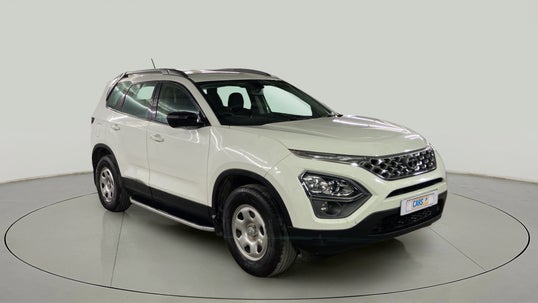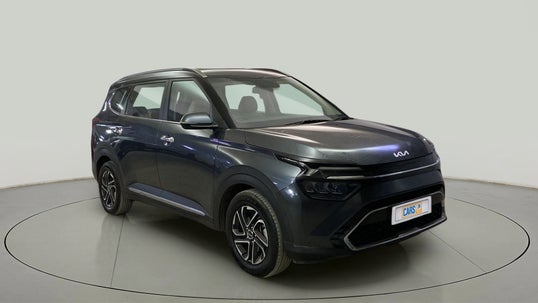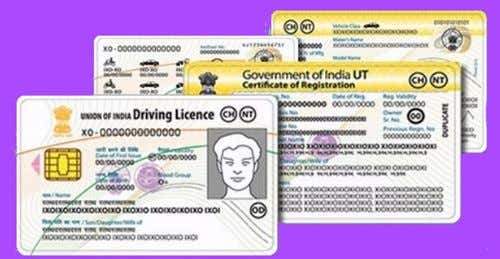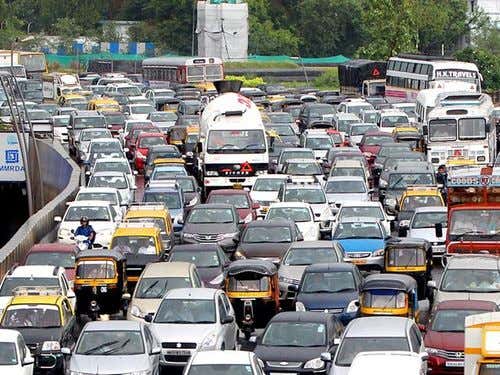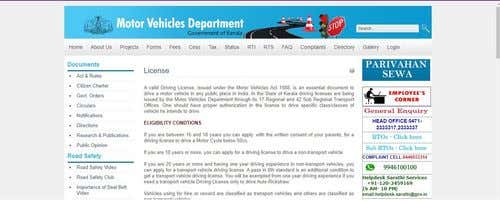How To Get Used Car Loan For Bad Credit Score?

Updated on: 21st April, 2024 IST

With more money comes more purchasing power. The same holds true in the Indian context where the economy continues to grow allowing people the luxury of having more money in their wallets. Luxury cars to gems and jewels and houses, the Indian buyers love to buy it all. Now, that more and more people are embracing the urban lifestyle, owning a car is fast becoming an essential.
From snazzy sedans to roomy MUVs, and compact hatchbacks to convertibles, the Indian car market features a star studded line-up of some of the most diverse range of vehicles. With that in mind, more people are looking for ways to finance their cars. And the process has become easier and accessible with the arrival of several major banks, Non-Banking Financial Companies (NBFCs), and lenders.
A credit score is like a financial report card. It’s a numerical representation of your creditworthiness and it helps banks determine whether or not you will be able to repay your loan on time. Without further delay, let’s dive into the world of credit scores and understand what it is and why it is important.
Table of Contents
What is a Credit Score?
When it comes to new car loans, an interesting dynamic comes into play. One where the vehicle you're purchasing often serves as a collateral. This unique aspect means that even if your credit score isn't shining, there's still hope for approval from banks or NBFCs (Non-Banking Financial Companies). But how does this all work, especially in an Indian context?
In India, the credit landscape is significantly influenced by the Credit Information Bureau India Limited (CIBIL), a well-regarded credit bureau. CIBIL collects financial data from various sources, including banks and financial institutions. This data encompasses various facets of your financial behaviour, such as credit utilisation, payment history, the diversity of credit accounts, and more. All these factors collectively contribute to what we know as a credit score – a numerical representation of your creditworthiness.
Your credit score is a three-digit number that reflects your creditworthiness. It's essentially a financial report card that lenders use to evaluate how likely you are to repay borrowed money. Scores range from 300 to 850, and the higher your score, the better your chances of loan approval.
When you're applying for a car loan, this credit score plays a pivotal role. It serves as a quick indicator for lenders about your financial reliability and your ability to handle credit responsibly. In other words, it helps them assess your capability to repay the loan on time.
So, while your credit score might not be perfect, the nature of car loans in India, where the car itself acts as security, means that banks and NBFCs might still consider your application favourably. This is where the combination of the vehicle's collateral and the evaluation of your credit score comes together to offer you a chance at obtaining that car loan you've been eyeing.
10 Tips to Get a Car Loan with a Poor Credit Score
Getting car loans with a less-than-perfect credit score can be a challenge, especially in a country like India, where a significant portion of the population faces this issue. Yet, as the financial landscape evolves, lenders are leveraging technology to offer funding options even to those with bad credit histories.
Here are some tips that can help you secure a car loan despite your credit situation.
1. Know Your Credit Score
- Start by checking your credit score
- You can access it for free once a year
- This will give you a clear picture of where you stand and what you need to work on
2. Budget Wisely
- Determine how much you can afford to pay each month comfortably
- This helps you avoid overextending yourself financially
Read More: Best Cheapest Cars In India
3. Save for a Down Payment
- A larger down payment shows your commitment and reduces the loan amount
- It can improve your approval chances and even lower your interest rate
4. Research and Compare Lenders
- Not all lenders have the same criteria for bad credit loans
- Shop around and compare interest rates and terms from various lenders
5. Consider a Cosigner
- A cosigner with a better credit score can vouch for your ability to repay the loan
- This can lead to better interest rates and higher chances of approval
6. Choose the Right Car
- Opt for a used car that fits within your budget
- Lenders may be more willing to approve loans for affordable vehicles
Also Read: How to Choose the Right Car Insurance Policy?
7. Show a Stable Income
- Lenders want to see that you have a steady income to cover the loan payments
- Provide proof of employment and income stability
8. Pay Off Outstanding Debts
- Clearing off some existing debts can positively impact your credit score and demonstrate responsible financial behaviour
9. Be Transparent
- When applying, provide accurate and complete information
- Being transparent can help build trust with the lender
10. Prequalify
- Some lenders offer prequalification, which gives you an idea of the loan amount and interest rate you might qualify for
- This helps you set realistic expectations
How to Improve Your Credit Score?
When it comes to loan approvals, banks in India look favourably upon individuals boasting a credit score of 750 or higher. Conversely, scores falling below 650 are deemed unfavourable.
A history punctuated by excessive debts, delayed payments, or insolvency raises red flags for loan default risk. Therefore, banks in India favour those with a strong credit history and score, as this reflects a lower risk of defaults. Improving your credit score takes time, but it's worth the effort.
Here's how you can work towards a better score:
1. Timely Payments
- Make sure that you pay your loan EMIs and credit card bills on or before the due date
- Late, skipped, or partial payments are discouraged and can negatively impact your credit score
2. Balanced Loans
- Try to maintain a healthy balance between your secured and unsecured loans
- Secured loans are just like your car and home loans and require collateral, while unsecured loans are much like your personal loans and rely on your creditworthiness
3. Avoid Premature Loan Closure
- While you can make partial prepayments when you have extra funds, avoid closing loans before their term ends
4. Try to Limit Your Loan Applications
- Applying for multiple loans simultaneously leads to hard enquiries, which can lower your credit score
- Be mindful of rejection rates
5. Regularly Check Your Credit Report
- You can obtain and check your credit report online from reliable resources and institutions like Experian, EQUIFAX, or CIBIL
- Make sure that you review it for errors and rectify any inaccuracies promptly
6. Control Credit Utilisation
- Stick to spending within 30% of your credit limit
- Always try to prioritise what you need over what you want to help manage your expenses better
The Bottom Line
In conclusion, while obtaining a car loan with bad credit might seem challenging, it's not impossible. By understanding your credit score, following the tips provided, and working to improve your creditworthiness, you can increase your chances of approval.
Remember, responsible financial habits like timely payments, balanced loans, and managing credit utilisation play a pivotal role. So, a well-informed approach can help you along the way. With the right steps, you'll be driving towards better credit and your dream car sooner than you think.
Your credit score isn't set in stone – it's a dynamic factor that you can positively influence with consistent efforts and mindful choices.
FAQs
Q. How to get a car loan with bad credit?
To get a car loan with bad credit, follow the tips mentioned earlier: know your credit score, budget wisely, save for a down payment, research lenders, consider a cosigner, choose the right car, show stable income, pay off debts, be transparent, and prequalify.
Q. What is a good interest rate for a used car loan with bad credit?
Interest rates for bad credit loans can vary widely. Generally, a good interest rate would be around 7% to 15%. However, rates may be higher for those with very poor credit scores.
Q. Which is the best lender for bad credit car loans?
Several lenders offer bad credit car loans in India. Some popular options include HDFC Bank, Axis Bank, and ICICI Bank. It's crucial to compare offers and choose the one with the best terms for your situation.
Q. How can I improve my credit score for a car loan?
Improving your credit score involves paying bills on time, reducing credit card balances, avoiding new accounts, and regularly reviewing your credit report for errors. Over time, these actions can help boost your score.
Q. What are the risks of getting a used car loan with bad credit?
While it's possible to get a car loan with bad credit, there are risks. You might face higher interest rates, which can lead to larger total payments. It's important to budget carefully and choose a loan that fits your financial capabilities.
Recently Added Cars to Buy
Other Blogs
- Recent
- Featured
Popular Cities to Sell Car





